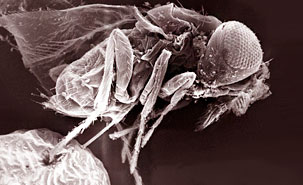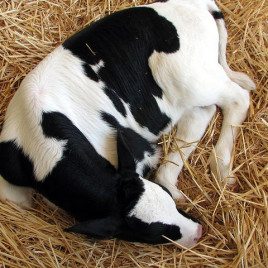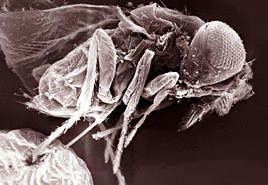
Sex allocation of parasitic wasps, such as Trichogramma euproctidis, is influenced by temperature. (Photo credit: University of Montréal)
Extreme climatic events could influence the sex ratio of a parasite that controls pests such as the European corn borer, a new study shows.
The parasitic wasp Trichogramma euproctidis lays its eggs inside the eggs of moths, preventing the moth egg from hatching into a caterpillar. The study showed that fewer females were born at low (14°C) and high (34°C) temperature, than at medium temperature (24°C). Since females live longer and can lay eggs without being fertilized, extreme temperatures could impact negatively the parasite population which would in turn facilitate European corn borer spread.
Original research paper published in the the journal Animal Behaviour on May 21, 2014.
Names and affiliations of selected authors


